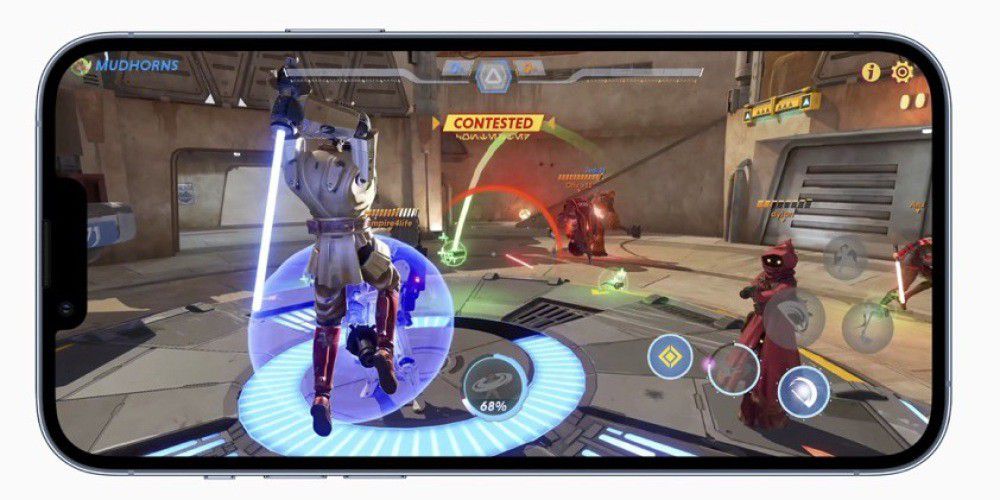Apple’s culture is what makes the Mac a bad gaming platform
Here we are, almost forty years after the debut of the Mac, and if there’s one issue that remains a hot button to this day it’s gaming on the platform.
This past week, my colleague Jason Cross penned a piece explaining the technological moves Apple would need to make in order to turn gaming on the Mac into a real thing. Jason’s points are good ones: there are a variety of technologies that Apple could embrace in order to make it easier for game developers to bring their work to the Mac.
But those hurdles are only one part of the overall issue–and a fairly small part, in my opinion. If Apple is capable of writing an impressive piece of software like Rosetta 2, which runs Intel-based apps on Apple silicon Macs with high performance and full transparency, then the company surely has the skills to implement existing game APIs that leverage all the power of their current machines.
No, the real obstacle to gaming on the Mac is one of culture and drive. And changing those is going to be a lot harder.
Fool me once
I’ve lost track of when it was I wrote my first piece for Macworld about Apple not “getting” gaming, but suffice it to say it wasn’t written in this decade. Or the decade prior. Apple’s history with gaming is a tortuous one, but for all the twists and turns it’s not hard to point to the moment where it really went south.
In 1999, then Apple CEO Steve Jobs came on stage at Macworld Expo to debut a blockbuster new title that would be coming to the Mac in the following year. That game was the original Halo and…it did not come to the Mac the following year, because the studio that created it–Bungie, a longtime developer of Mac games–was bought by Microsoft just under a year later, and Halo became a debut title for Microsoft’s new console, the Xbox.
It’s certainly not hard to imagine Apple feeling burned by this. After all, Jobs himself had carved time out of Apple’s own keynote to market what eventually became a Microsoft-exclusive title. (Halo did eventually arrive on the Mac, but not until the end of 2003.)
Over the years since, Apple’s interest in gaming on the Mac has gone up and down with the times: sometimes the company seems bullish, such as when it announced its Metal framework to replace the Open GL system it had previously relied upon. Other times, keynotes have passed with little fanfare for gaming.

Halo made its debut during an Apple presentation. It never made it to the Mac.
343 Industries
With Apple’s latest Macs, the pendulum has swung back towards the company touting just how good the hardware it offers can be—if only developers embrace the tools Apple offers.
Opening the source
And herein lies the problem. Gaming on the Mac is a classic chicken-and-the-egg situation. Customers don’t buy Macs for gaming because simply put, there aren’t enough games that run on them. Thus, most game developers don’t spend the time, money, and energy it would take to port their games to the Mac…because there aren’t enough customers. Even most die-hard Mac users who are excited about gaming have given up over the past few decades and built gaming PCs or bought consoles. (As an owner of an Xbox One, PlayStation 5, and Nintendo Switch, I can personally attest to this fact–and I only consider myself an occasional gamer.)
Making it technologically easier for games to come to the Mac is definitely a part of the equation for changing that. But in order for even that to happen, Apple is going to have to take a very un-Apple-like move: swallowing its pride. That means abandoning its idealism for practicality; yes, its own custom tools might be better in terms of the sheer performance they can wring out of the hardware, but if game developers aren’t willing to invest in using them, then any technological advantages they might offer are moot.
One reason Apple hasn’t yet felt like it has to make this move is that it does have one major counterexample: iOS. The company’s success with gaming on its mobile platforms has been huge, but I’ve always argued that it’s a bit of a fluke. Yes, the iPhone (and to a lesser extent, the iPad) is a great device for gaming, but not because Apple set out to build a great device for gaming. Rather the device became so popular for everything else, game developers flocked there because it had a big audience. And Apple has done a lot to support game development on iOS over the years, but that doesn’t necessarily translate to the gaming market at large.

The iPhone is already a great gaming device—will Apple take the necessary steps to make the Mac one too?
Apple
Game on
At a high level, the heart of the issue is that there doesn’t seem to be anybody at Apple who has both a passion for games and is in a position to effect policy changes. One of the reasons the iPod and iTunes Store were so successful is because it was clear that Steve Jobs really was a music fan–it let him tap into what other music fans really wanted, and he had the drive to make the products great. That same enthusiasm has never really been there for other media, like TV or movies, which ended up more as items for Apple to check off a list.
Looking at the top level of Apple’s leadership, it’s hard to picture any of them as avid gamers. Sure, I’m certain most of them have played games from time to time, but I don’t sincerely believe any of them consider it something they’re passionate about in the way that Jobs was about music. I get a distinct impression, having covered this company for almost two decades, that the attitude of Apple towards gaming is still, at best, a well-meaning bafflement or, at worst, a more snobbish condescension.
And yet, despite what Apple thinks, gaming remains a wildly popular pastime. It’s difficult to conceive that there aren’t avid gamers amongst Apple’s ranks, if only because it’s hard to find someone under the age of 30 who didn’t grow up with video games in one form or another. If Apple really wants to change how gaming on the Mac is perceived, what it needs is a game czar: someone who understands and is enthusiastic about gaming, not just pretending to be, and who can back up that enthusiasm with action. To push through these obstacles, Apple needs to actively work with the community of game developers not only to show what the platform has to offer but also, more importantly, listen to what developers need to make Mac gaming a real companion–and competitor–to console and PC gaming.






